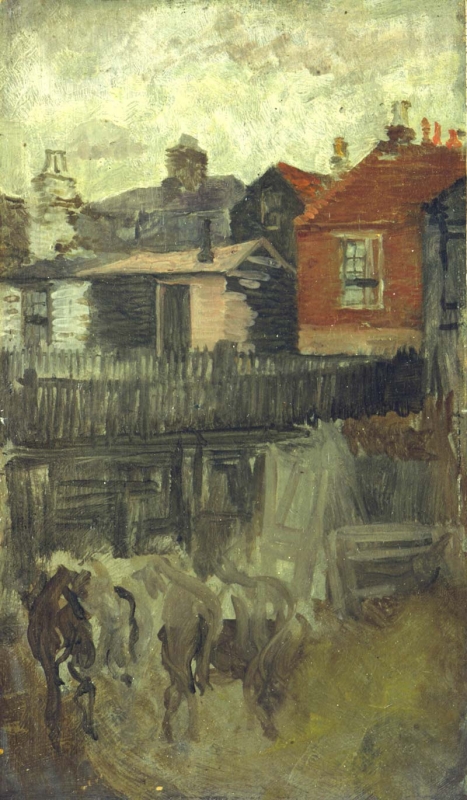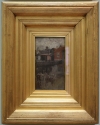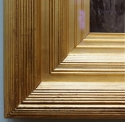Technique
It is painted on a thin softwood panel, probably pine, about 3 mm thick, which has been roughly bevelled at top and bottom. The thin, mid-grey priming was applied with randomly swirled brushstrokes, unusual in Whistler's panels, and possibly concealing an earlier composition. 1
The paint is freely applied and the brushwork remarkably diverse. The paint is of pasty consistency, possibly with an added 'sauce', and thinner in the foreground than on the sky. The paint runs over the edges, at all sides. On the houses, the bricks, tiles, and weathered wooden planking are built up carefully with short strokes of a soft, round-ended brush, 2 mm wide. The artist may also have used a longer brush, since a hair 7 mm long is trapped in paint in the foreground. The animals are painted much more freely in long wriggly brushstrokes of brown and grey – presumably because they would not keep still. On the left, the chimneys have been painted over the sky; on the right, the sky was painted over the chimneys, showing that the panel was painted in two separate sessions.
Conservation History
The panel is thin and fragile, and very slightly warped. Despite minor paint losses at the edge, the paint is relatively stable, as is the thin glossy varnish, although it is slightly yellowed. 2
Frame
Grau-style frame, 46.9 x 37.9 x 7.2 cm. 3
Last updated: 22nd October 2020 by Margaret








